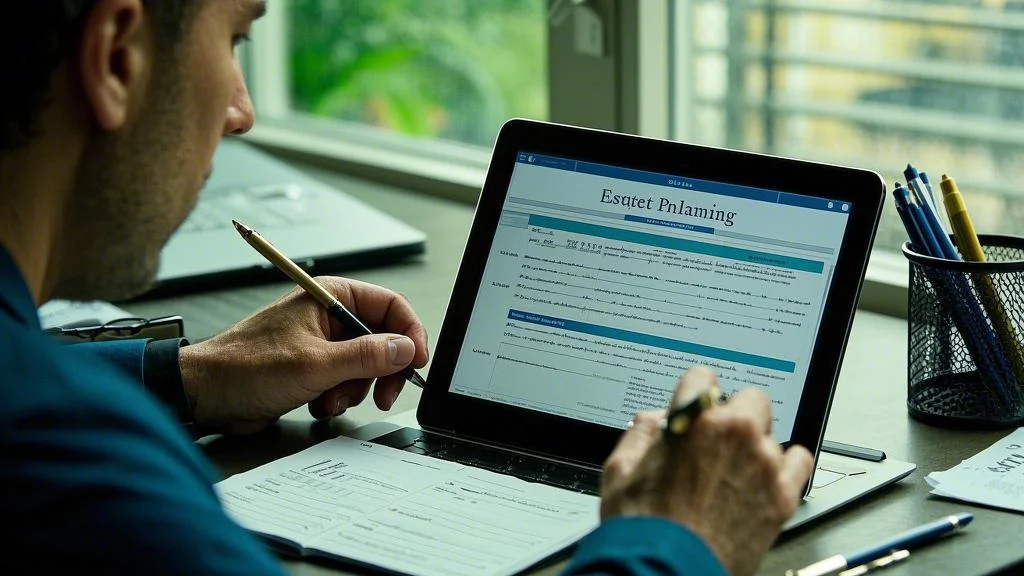Creating an Estate Planning Checklist for Peace of Mind
Estate planning is a critical step in ensuring your assets are distributed according to your wishes and that your loved ones are taken care of after you’re gone. An estate planning checklist can help you organize the essential documents and tasks needed to create a comprehensive plan. One of the first items on your checklist should be a will, which outlines how your assets will be distributed and who will care for any minor children. Without a will, your estate will be subject to state laws, which may not align with your intentions. Additionally, consider setting up a trust, which can help avoid probate and provide more control over how your assets are distributed.
Another important item on your estate planning checklist is to designate beneficiaries for your retirement accounts, life insurance policies, and other financial accounts. This ensures that these assets are transferred directly to your chosen beneficiaries without going through probate. Additionally, consider creating a power of attorney and healthcare directive, which designate someone to make financial and medical decisions on your behalf if you become incapacitated. Finally, review and update your estate plan regularly, especially after major life events like marriage, divorce, or the birth of a child. By completing your estate planning checklist, you can protect your assets and provide for your loved ones.
Understanding Living Trust vs Will: Which is Right for You?
When creating your estate plan, one of the key decisions you’ll need to make is whether to use a living trust vs will. Both tools serve the purpose of distributing your assets after your death, but they work in different ways. A will is a legal document that outlines how your assets will be distributed and who will care for any minor children. However, a will must go through probate, which can be a lengthy and costly process. On the other hand, a living trust allows you to transfer assets to beneficiaries without going through probate, providing more privacy and control.

One of the key benefits of a living trust is its ability to manage assets during your lifetime if you become incapacitated. The trustee you appoint can manage the trust’s assets on your behalf, ensuring your financial affairs are handled according to your wishes. However, a living trust can be more complex and expensive to set up than a will. Ultimately, the choice between a living trust vs will depends on your individual circumstances, including the size of your estate and your goals for asset distribution. By understanding the pros and cons of each, you can make an informed decision that best meets your needs.
Inheritance Tax Planning to Protect Your Legacy
As you plan your estate, it’s important to consider how your assets will be taxed upon your death. Effective inheritance tax planning can help you minimize taxes and ensure your wealth is passed on to your beneficiaries. One of the first steps is to understand the inheritance tax laws in your state, as they can vary widely. Some states have no inheritance tax, while others impose significant taxes on inherited assets. By understanding these laws, you can take steps to reduce your tax liability.
One effective inheritance tax planning strategy is to use gifting. You can gift up to the annual exclusion amount—currently $17,000 per recipient—without reducing your lifetime estate tax exemption. Additionally, consider setting up trusts to protect your assets and provide for your heirs. For example, a bypass trust can help married couples maximize their estate tax exemptions. By working with an estate planning attorney, you can create a comprehensive plan that minimizes taxes and ensures your wealth is preserved for future generations. By incorporating these strategies into your estate plan, you can protect your legacy and provide for your loved ones.
Maximizing the Estate Tax Exemption for Wealth Preservation
As you build wealth, it’s important to consider how to preserve that wealth for future generations. One key strategy is to maximize the estate tax exemption, which allows you to pass on a certain amount of assets tax-free. As of 2023, the federal estate tax exemption is $12.92 million per individual, meaning you can transfer up to this amount without incurring federal estate taxes. However, this exemption is subject to change, so it’s important to stay informed and plan accordingly.
One way to maximize the estate tax exemption is to use gifting strategies. You can gift up to the annual exclusion amount—currently $17,000 per recipient—without reducing your lifetime exemption. Additionally, consider setting up trusts to protect your assets and provide for your heirs. By working with an estate planning attorney, you can create a comprehensive plan that minimizes taxes and ensures your wealth is preserved for future generations. By incorporating these strategies into your estate plan, you can achieve financial freedom while protecting your legacy.
Wealth Transfer Strategies to Ensure a Smooth Transition
Transferring wealth to the next generation requires careful planning and effective wealth transfer strategies. One common strategy is to use trusts, which can provide control over how and when your assets are distributed. For example, a revocable living trust allows you to manage your assets during your lifetime and transfer them to beneficiaries without going through probate. Irrevocable trusts, on the other hand, can help reduce estate taxes and protect assets from creditors.
Another important wealth transfer strategy is gifting. You can gift up to the annual exclusion amount—currently $17,000 per recipient—without reducing your lifetime estate tax exemption. Additionally, consider using life insurance as a wealth transfer tool. A life insurance policy can provide a tax-free death benefit to your beneficiaries, helping to cover estate taxes or other expenses. By incorporating these wealth transfer strategies into your estate plan, you can preserve your legacy and provide for your loved ones.


